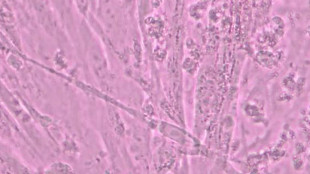In 2007, Japanese scientist Shinya Yamanaka reprogrammed adult skin cells into a stem-like state using a quartet of genes. These induced pluripotent stem cells (iPSCs) earned Yamanaka a Nobel Prize in 2012, kicked off a flood of research, and promised a way of growing bespoke tissues.
But reprogramming techniques are still notoriously inefficient. At best, they can convert around 10 percent of adult cells into iPSCs; often, they only manage around 0.1 percent. Worse still, the process seemed random, and it was impossible to predict which cells would be successfully reprogrammed.
This roadblock may be a thing of the past. Jacob Hanna at Israel’s Weizmann Institute of Science has found a straightforward way of producing iPSCs with almost 100 percent efficiency. Hanna’s team simply disabled a single gene, Mbd3, which seems to repress pluripotency.
“I never believed we’d get to 100 percent,” said Hanna. “This shows that the process of reprogramming need not be random and inefficient. You can really control the cells much better than we thought.” He also noted that the new method could make it easier for scientists to map the changes that go on in iPSCs as they are reprogrammed. The discovery was published today (18 September) in Nature…







